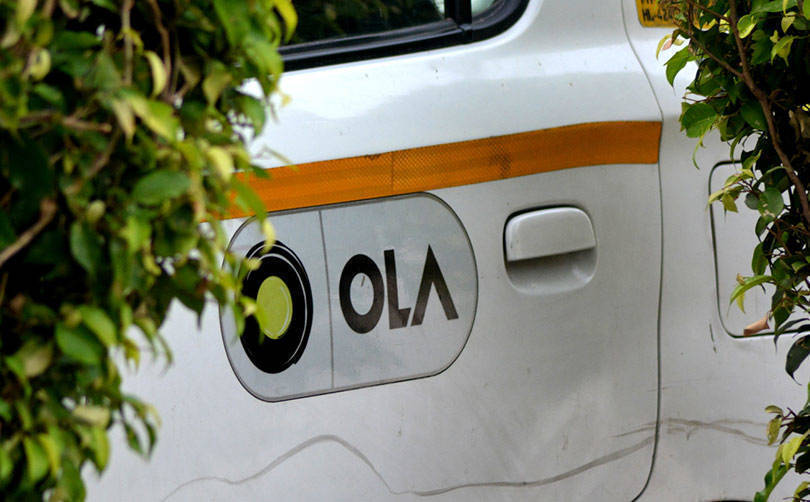
Ola may acquire e-pharmacy startup Myra: Report

After betting on food-tech, ride-hailing unicorn Ola appears to have set its sights on the online pharmacy space amid efforts to diversify its offerings.

Bhavish Aggarwal-led Ola is reportedly in talks to invest in and potentially acquire online pharmacy startup Myra. Citing two people it did not name, Mint reported that a deal may be struck by the end of this month.
Ola and Myra both count multi-stage investment firm Matrix Partners as an investor.
Should a deal go ahead, Ola will foray into a market that has attracted considerable investor interest but has been bogged down by legal complexities especially in the recent past.

Run by Bengaluru-based Metarain Software Solutions Pvt. Ltd, Myra is one of several venture capital-backed startups that offer online access to medicines and provide doorstep delivery. It currently caters to select areas of Bengaluru and Mumbai.
The startup was founded in January 2013 by Faizan Aziz, former chief technology officer at mobile products startup Dexetra, and Anirudh Coontoor, who had a stint as a software engineer at Nokia.
Myra has so far raised roughly $10 million from the likes of Matrix Partners, Times Internet and Dream Incubator.

In its most recent funding round which took place last September, the startup secured Rs 8.75 crore ($1.2 million) in additional capital from existing investors. Myra was valued at around Rs 180-183 crore ($25 million) after accounting for the latest infusion.
Besides institutional investors, Myra is backed by the likes of former Linkedin India CEO Akshay Kothari, PayU India co-founder and Ola Money CEO Nitin Gupta, Quikr chief executive Pranay Chulet, LimeRoad co-founder Prashant Malik, Vy Capital associate director Vamsi Duvvuri and former Twitter executive Pankaj Gupta. The investors had infused capital into the e-pharmacy in their individual capacities.

Myra’s operating revenue nearly quadrupled in the financial year 2017-18 to Rs 26 crore from Rs 6.6 crore in the previous fiscal, according to data available with VCCEdge, the data and research platform of VCCircle.
However, the company recorded losses to the tune of of 35.8 crore, tripling from Rs 11.9 crore in the year-ago period. Its total expenses stood at Rs 63 crore compared to Rs 18.7 in the previous year.
Text messages sent to Aziz and email queries to Ola did not elicit responses till the time of publishing this report.

Ola’s game plan
Amid a bruising battle for market share with US-headquartered cab aggregator Uber, Ola has been exploring several growth opportunities including international expansion and vertical growth in the food delivery market.
Outside India, Ola currently operates its taxi services in New Zealand, Australia and United Kingdom.
Ola acquired Foodpanda from its German parent Delivery Hero in December 2017 and has since been aggressively growing its food delivery business.

It subsequently acquired shuttered food-tech startup Holachef to mark Foodpanda’s entry into the cloud kitchens space, where it will launch its own brand of food products in different categories.
The company also runs a two-wheeler service under Ola Bike, a three-wheeler service under Ola Auto, besides its taxi cab service where it offers on-demand short distance conveyance in hatchback, sedan and luxury cars, outstation trips and rental.

Recent reports suggested that Ola, which counts SoftBank and Temasek Holdings among its investors, was in discussions with South African internet conglomerate Naspers to raise $1 billion in fresh funding.
E-pharmacies
E-pharmacies have been facing severe opposition from traditional pharmacists. There were several strikes against the government’s move last year to regularise online pharmacies while a number of petitions were also filed in different courts against e-pharmacies.
The Delhi High Court and the Madras High Court had banned the sale of medicines online in separate orders issued over the past couple of months.
At the heart of the problem is the contention by the petitioners that the online sale of medicines is in contravention of the Drugs and Cosmetics Rules, 1945.
Accordingly, sections of the rules stipulate that the online sale of drugs that fall under Schedule H, H1 and Schedule X can be sold only if a valid prescription is issued. They claim that e-pharmacies have flouted Rules 65 and 97 of the act by selling prescription drugs and controlled substances without a valid prescription. Additionally, these players also offered bulk discounts to users, with the price difference going up to even 20%.
However, in its latest ruling, the Madras High Court stayed an order banning the sale of medicines online. Vacating a single-judge bench’s earlier order, the two-member bench of M Satyanarayanan and P Rajamanickam said medicines have been sold online for a long time and a sudden shut down of the practice will create “grave hardship, inconvenience and health issue to patients/persons who order medicines through online platforms”
The top three players in this domain are NetMeds, PharmEasy and 1mg. VCCircle had reported recently that Gurugram-based 1mg is in the process of raising up to $60 million in its largest funding round till date.
